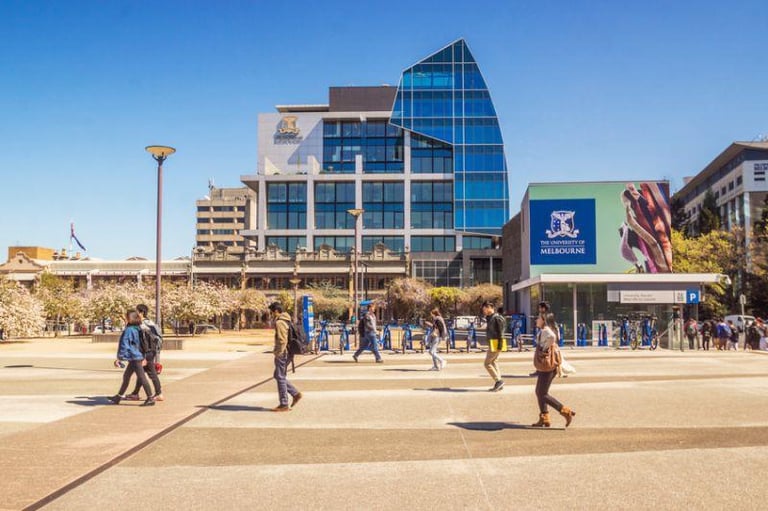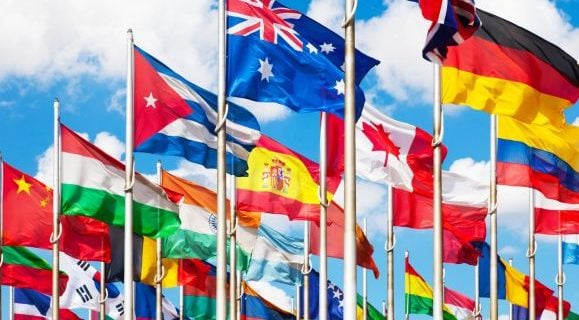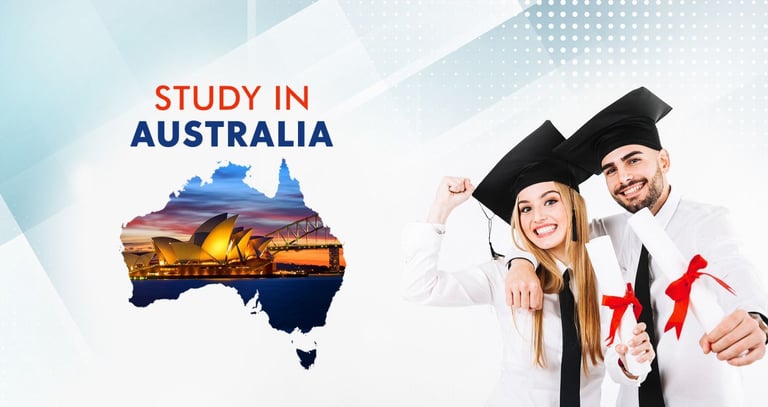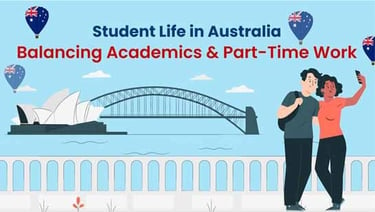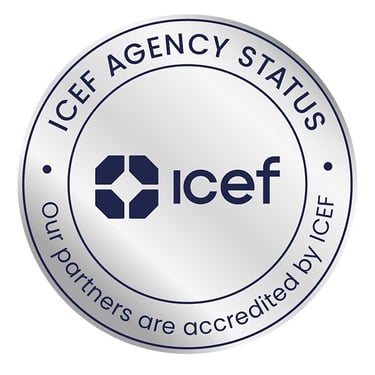

Study in Australia
Popularly known to be the land of adorable kangaroos and koala bears, Australia is also a welcoming country for overseas students. Being the 6th largest country in the world – Australia is known for its diversity, beauty, and education. Globally, Australia has seven of the best cities for students. Over the years, Australia has seen an increased affinity among students from around the globe. The education system offers its students a wide variety of courses to choose from. Top universities, an array of courses, student-friendly cities, and more, are what attract students to Australia.
Quality of life in Australia
The Organization for Economic Cooperation and Development (OECD) measures the quality of life on predefined metrics, and Australia comfortably performs above average in many parameters contributing to a better life. Cities like Melbourne, Adelaide, Canberra, Sydney and Brisbane rank high in the quality of life, safety, purchasing power, health care and cost of living. The QS Ranking for Best Cities for Students features – Melbourne, Sydney, Brisbane, Canberra, Adelaide, Perth, and the Gold Coast; Melbourne and Sydney come in the top 10.A full-time employee in Australia spends 14.4 hours on average in leisure activities like socializing, sports, and recreational activities. Income earned on average by an Australian household is higher than the average maintained by the OECD.
Study in Australia’s top-ranking Universities
Australia welcomes the highest number of students in the world. Tertiary courses contribute to the most number of student intakes. China, India, and Nepal contribute largely to overseas student enrolment.
Mixed Field Programmes, Management and Commerce, Science and Engineering, Architecture and Built Environment, Humanities, Education, Health, and Society and Culture are courses that most excite international students to pursue study in Australia. Most universities offer their students the option of acquiring two degrees simultaneously, through their dual degree programs. The biggest advantage for a student is acquiring two degrees in a short span.
Educational institutions in Australia have an undisturbed reputation of being among the best in the world. Eight Australian universities find themselves occupying the top 100 ranks according to the latest QS ranking in 2020. In the subjects of – Life Sciences and Medicine, Social Sciences, Natural Sciences, Arts and Humanities, Engineering and Technologies, and Management, three Australian Universities feature in the top 50 in their area of study.
A large number of students enrolled at the levels of Higher education, though, Vocational Education and Training also see a considerable volume in course preference.
Work Opportunities after studying in Australia
A student, after completing a course, may decide to stay back in the country and look for employment opportunities or may decide to study further. The education system has continued to flourish. Industry-centric courses have generated opportunities for a skilled workforce, graduating from the educational system of Australia. Nine Australian universities secure the highest rank for graduate employability.
A Post Study Work Permit (PSWP) is required by an Indian student to work in Australia. To be eligible for a PSWP, the student is required to graduate from an eligible Bachelors or Masters or Doctorate (PhD) level. It is important to note that an Indian student is required to take a course for a duration of 92 to 104 weeks to be declared eligible for a PSWP.
Students graduating from universities in Australia are highly skillful, educated and have a high level of employability. Degrees earned from universities in Australia increase a candidate’s employability not just in the country but across the globe. There are 43 Universities in Australia offering courses of paramount quality. The Australian Qualifications Framework (AQF) allows students to move freely through the education system. The AQF is designed by the Government of Australia – oversees the quality of education, and guarantees consistent education to every student. The AQF has Levels 1 (Certificate I) to Level 10 (Doctoral Degree).
Degrees through the AQF make it easy for other countries to identify the level of qualification a degree from Australia holds. Universities offering education to overseas students are required to register under the Commonwealth Register of Institutions and Courses for Overseas Students (CRICOS). Registration with the CRICOS validates an Australian Institution as meeting the required standard of education.
Diversity of courses
Students graduating from universities in Australia are highly skilful, educated and have a high level of employability. Degrees earned from universities in Australia increase a candidate’s employability not just in the country but across the globe. There are 43 Universities in Australia offering courses of paramount quality. The Australian Qualifications Framework (AQF) allows students to move freely through the education system. The AQF is designed by the Government of Australia – oversees the quality of education, and guarantees consistent education to every student. The AQF has Levels 1 (Certificate I) to Level 10 (Doctoral Degree).
Degrees through the AQF make it easy for other countries to identify the level of qualification a degree from Australia holds. Universities offering education to overseas students are required to register under the Commonwealth Register of Institutions and Courses for Overseas Students (CRICOS). Registration with the CRICOS validates an Australian Institution as meeting the required standard of education.
Study In Australia and Get a Universally Recognized
Education offered by Australian universities is mandated to meet the standards of the Australian Qualifications Framework (AQF), and hence, it guarantees that students receive the best form of education at every level. The Global Employability Index of Australian universities is high, and thus as a graduate from the educational institutions of Australia, a candidate is perceived to be highly knowledgeable, bright and is seen as an unconventional thinker.
Academic institutions of Australia have given birth to leading scientists, humanitarians, entrepreneurs, designers, and artists who have impacted the world by their contributions. The Wi-Fi, penicillin, the black box flight recorder, Google Maps, the Earth Hour initiative and the Cochlear implant are some of the humble innovations that graduates from Australian Universities have given to the world.
Do Part-time while you study in Australia
Like other countries, Australia too offers its international students the opportunity to work while studying. The option of work is available to students who have a student visa under Sub-class 500. A student with the said visa is permitted to be employed for 40 hours a fortnight while the course is in process, and can work full-time (unlimited hours) on course breaks.
A student cannot begin work until the commencement of their course. Some course structures have integrated internships- here the work-hour limit does not apply. Ph.D. students can begin work once their research and thesis work begins and work for an unlimited number of hours. However, in case a postgraduate student takes up a preliminary course – the 40 hours every two weeks, applies.
Study in Australia in a multicultural and secure atmosphere
Considered one of the safest countries in the world, Australia is a healthy and secure place for Indian students. Australia is welcoming to international students and extends its warmth to people from all nationalities. Diversity is an asset that every Australian citizen embraces.
Travel around Australia is safe whether the choice of commute is a flight, train, bus or taxi. Driving needs to be performed with caution as one may encounter wild animals crossing open roads.
In case of an emergency, a student can reach Australia’s emergency service at zero zero zero (000) – a toll free number. While on campus, a student is required to acquaint themselves with the security instructions provided at the university, often this information is shared with a student during their orientation. Larger universities offer shuttle services during non-office hours; a student is required to contact their institution to seek this information.
Famous exceptional places to visit in Australia
The iconic wonders – Sydney Harbor Bridge and Opera House are famous the world over. Australia has a lot to offer to a casual backpacker. The island country of Australia has so much beauty to explore and enjoy. Australia is a surfers’ paradise! A student can choose to enjoy the tranquillity of a beach, the buzz of the city and the traditional lifestyle of the Aborigines. The beautiful island of Tasmania offers its visitors a ton of activities to choose from – from high sea sailing, surfing, and deep sea diving – one cannot leave without an adventure. Crafted by nature the world’s largest coral reef system – the Great Barrier Reef can be seen from outer space. The Great Barrier Reef is the largest single structure made by living organisms.
Trouble free Visa Norms to Study in Australia
An Indian student seeking to study in Australia is entitled to a visa under Subclass 500. To be eligible, the student needs to have a Confirmation of Enrolment (COE). The COE is required and has to be entered while filling out the visa application form online. Having a COE confirms that the student is an enrolled student with one of the education providers in Australia.
To be eligible for an Australian visa, a student is required to produce documents declaring sufficient income to support their study and stay in Australia. The student and their family member accompanying them into the country are required to satisfy health requirements.
An Overseas Student Health Cover (OSHC) is required to be paid by a student, and if accompanied, is also a requirement for a family member. OSHC remains valid until program completion. It is mandatory to have a clean record to be eligible for an Australian visa; a police clearance should serve the purpose in this regard. A prerequisite for a visa is proficiency in the English language; a good IELTS / TOEFL score should suffice.
Relatively Lower cost of education to study in Australia
A student from another country should account for all expenses before embarking on their journey.
Study in Australia cost for Indian students
Per year in AUD and INR as follows:
School $7,800 – $30,000
Approx INR 4,36,000 – INR 17,20,000
English Language Studies
$300 per week depends on the duration of the course
Approx INR 16,800
Vocational Education and Training
$4,000 – $22,000
Approx INR 2,24,000 – INR 12,28,00
Undergraduate Bachelor Degree *
$20,000 – $45,000
Approx INR 11,16,000 – INR 25,11,00
Postgraduate Masters Degree*
$22,000- $50,000
Approx INR 12,28,000 – INR 27,90,00
Doctoral Degree*
$18,000- $42,000
Approx INR 10,05,000 – INR 23,43,00
Note: The fee range for undergraduate bachelors, postgraduate bachelors and doctoral degrees do not contain the values for higher cost courses such as veterinary and medical.
While designating funds a student should account for the cost of living, accommodation along with other expenses.
Mentioned below are a list of accommodation offerings and the costs they entail.
Hostels and Guesthouses
$110 – $250A week
Approx INR 6,200 – INR 13,400
Shared Rental
$100-$215A week
Approx INR 5,600 – INR 12,050
On campus
$200 – $380A week
Approx INR 11,200 – INR 21,300
Homestay
$180 – $325A week
Approx INR 10,100 – INR 18,200
Rentals
$185- $440A week
Approx INR 10,400 – INR 24,650
Boarding schools
$11,000- $22,000a year
Approx INR 6,16,000 – INR 12,32,00
Other expenses that a student may incur solely depend on their location and lifestyle.
Qualification Offered
The Australian Qualifications Framework (AQF) under the Government of Australia issues qualifications to institutes that have passed its scrutiny. The AQF policies ensure that educational institutions offer value education and that every student, whether domestic or foreign, receives a quality education. The AQF has ten levels- starting with Certificate I, II, III, IV to Bachelor (levels 6 and 7), Master (level 9), and Ph.D. (level 10).
Below are the Australian Qualifications Framework (AQF) levels of qualifications granted by Australian institutions for higher education:
Post-Graduate Courses
· Master’s Degree (coursework)
· Master’s Degree (extended)
· Master’s Degree (research)
· Doctorate
Undergraduate
· Bachelor's Degree (honors)
· Bachelor Degree
VET Education or Diploma Course (Year 1- leading to Degree – Bachelors direct into 2nd Year)
· Diploma
· Associate Degree
· Advanced Diploma
Tertiary education
Tertiary education in Australia consists of Higher Education (Universities), Vocational Education and Training Institutes [Vocational Education and Training (VET) and Technical and Further Education (TAFE) colleges. Lectures are generally conducted in large groups and small group tutorials.
QUALIFICATIONS OFFERED
· Doctoral Degree
· Master’s Degree
· Graduate Diploma
· Graduate Certificate
· Bachelor Degree
· Associate Degree
· Advanced Diploma
· Vocational Graduate Diploma
· Vocational Graduate Certificate
· Advanced Diploma
· Diploma
TEST REQUIREMENT
· TOEFL: Test of English as a Foreign Language (TOEFL)
· IELTS: International English Language Testing System
· PTE: Pearson Test of English (Academic)
WORK RIGHTS AND STAY BACK
· Part time work rights – 40 hours per fortnight when the courses are in session and full time work rights for a spouse for Masters, PhD and post-doctoral programs
· Bachelors 2 years stay back
· Masters by course work 2 years can be extended by 2 years
· Masters by research (3 years) up to 3 years &PhD students – up to 4 years
AUSTRALIAN EDUCATION SYSTEM
· Universities – Offering Graduate, Certificate, Graduate Diploma, Masters and PhD.
· Vocational institutions -Both government and private funded and closely linked with various industries offering highly practical and skill-based courses.
· Schools- Both government and privately funded
COST OF EDUCATION
· Diploma & Advanced Diploma: AU$10,000 to 14,000/-*
· Bachelor’s Degree: AU$: 15,000 to 19,000 per year*
· Graduate Diplomas & Masters: AU$15,000/- to AU$23,000/-*
*Fees given are informative and may vary from university to university
INTAKE
· Feb / July / November
If you have specific questions about the application process or requirements for a Study in Australia visa, feel free to ask! Emanate Globus can provide detailed information or help clarify any points you may be unsure about. If you prefer to reach out directly, providing contact information or an email address is a great way to ensure you receive tailored assistance. Let us know how you’d like to proceed!


